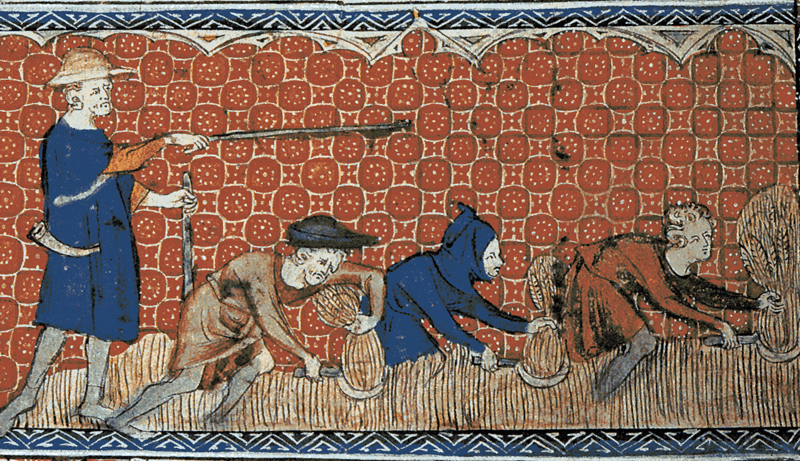One of the things that we forget about Feudalism is that serfs had rights: economic rights. They had the right to farm common land, they had the right to take wood from common forests, they had the right to live where they had lived before.
This is not to say that they were free, they certainly were not. But they were not slaves; they had access to, as it were, capital: what they needed to grow their own food, shelter themselves and clothe themselves.
We have an overly grim view of the Middle Ages, but, in various periods and various places, serfs, let alone freeholders, lived quite well. Much of what we associate as the worst of the Middle Ages actually happened either in the Dark Ages or in the Renaissance. For example, torture really takes off in the Renaissance, because as Stirling Newberry has pointed out, torture chambers and so on take a lot of iron and they didn’t have it to waste in the Middle Ages.
Late serfdom (after the Renaissance) was pleasant enough for serfs that they had to be forced off their land: The factories were worse. In factories, they lived shorter, sicker lives and worked far more. Capitalism is based on dependency—on wage laborers needing to work for someone else, or their lives are miserable or short. (Marx’s “whip of hunger”.) It is voluntary only in the sense that you can offer your labor to anyone willing to pay, not in the sense that you can opt out of the system and have anything approaching a decent life.
Today, if you lose your job and you’re an ordinary person, you can’t support yourself. If the government, friends or family don’t give you what you need, you have to beg for it. If you don’t get it, you die. Homesteading laws and laws which allowed people to take unused or underused property and use it to support themselves have been drastically weakened.

